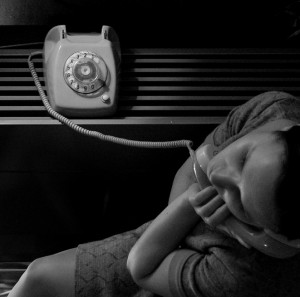
https://www.flickr.
Was The Comcast Representative To Blame For His Pushy Behavior?
By now you may have heard about the hilarious (if not mildly disconcerting) viral phone call involving Ryan Block and his desperate attempt to get his Comcast service disconnected. Instead of simply complying with his request while asking a few questions about why he’s departing and what would be required to keep his service, this employee…goes off the rails.
The conversation, which has been streamed over 4 million times, is laughable because practically everyone who’s heard the tape can relate.
But wait a minute: Was this man simply a jerk who didn’t know how to take no for an answer, or was he simply following orders?
It’s possible that the man on the tape represents Comcast training at work. That is, wearing down a customer who wishes to leave until he or she changes their mind. That could be his job – in fact, he went so far as to say that was his job in the recording, which is why he blatantly refused to cooperate with their wishes.
If he was trained to go to these extremes to refuse to disconnect customers, then he was in fact well trained and doing his job.
The problem here would be the training itself.
If, for instance, a customer is looking to buy a gun and a customer service representative is trained to ask certain questions (their age, what state they live in, if they are allowed to own a gun), then it’s expected that the representative will comply.
At the same time, there are real-world considerations to keep in mind when properly training customer service representatives in order to make sure that they are not only knowledgeable,but also courteous to customers.
It’s not fair to blame an employee for potentially behaving in a manner that may be in line with company expectations.
Bad Customer Representation: The Employee vs. The Employer
Block actually spoke up in defense of the unnamed Comcast employee. In his mind, the interaction representsa wider problem.
“Customer retention and other CS departments often provide financial incentives to representatives to prevent customers from disconnecting (among other things),” said Block.
He also claimed that people who said that they currently or previously worked for Comcast “have come out of the woodwork”to declare that the man Block spoke to was behaving in line with Comcast’s expectations.
If this is true then it’s unfair to blame the bad customer service on this individual. Instead it would be up to the company to update its aggressive policies.
This situation would be completely different if Comcast were widely known for outstanding customer service. The man’s behavior would be jarring and even upsetting to observers.
Typically, it’s easy to distinguish from a person who is terrible at dealing with customers and a person who is obeying policies that are questionable at best.
What Can We Learn From This Fiasco?
There are a few points that can be taken from this hilariously exasperating situation.
First: Comcast is kidding itself if they expect everyone to believe that this is down to one anonymous individual. There have been too many Comcast horror stories for this to be a fluke. It’s clear that something must be done, and perhaps this embarrassing situation might inspire the company to treat customers (current and departing) with more respect.
Second: Choose your service providers wisely. Because calls like this are so common, it stands to reason that there are “horror” stories all over the internet.
Before spending money, perhaps do the research to find out whether or not it will be worth the trouble. Pay special attention to how individuals felt about the customer service; this will be a prime indicator of what you can expect when you find yourself needing help.
Granted – and this is the biggest problem yet – you may not have a choice in service providers depending on where you live. In fact, there’s a decent chance that you have a greater selection of CAT dealers in your area than Internet service providers. This is a fact that Comcast, recently crowned the worst company in America, is keenly aware of. It’s perfectly clear that they have no motivation to change their ways.
Lastly, this should serve as a warning to Comcast and all major companies: We are in the “viral” age, where any slip-up can become big news practically in an instant. Rather than stick to outdated behavior patterns that can easily wind up all over the internet, employees should always be reminded that not only are they representing the company, but also themselves, too.
Go viral for the wrong reasons and you may find yourself out of a job.
Many doubt the man taped by Block is solely to blame for his pushy behavior, but perhaps that unpleasantness is part of who he is. Perhaps he’s only following orders. Or maybe it’s a bizarre combination of the two.
In any case, this situation represents the very worst of customer service and no company should actively (or passively) encourage this type of behavior. If Comcast does insist that representative behave in this way, they must look at the backlash as a mandate to make some fairly sweeping policy changes. If this is, in fact, an isolated incident, then Comcast must clarify that such behavior will not be tolerated.







